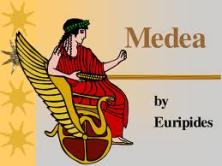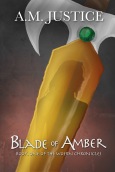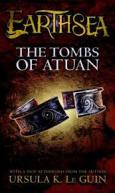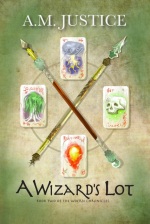A few months ago I wrote about folding backstory into a narrative to give your readers the vital information they need without hitting them over the head with a history lesson. In that post, I quoted this received wisdom:
Don’t use prologues.
That advice comes from agents and traditional publishers who believe, based on the contents of their slushpiles, that “prologue” means “deadly boring waste of my time.”
 The actual definition of prologue is a separate introductory section of a literary work. Etymologically, the word comes from the ancient Greek prologos, which described the preamble to a play that established the setting and provided background information to enhance the audience’s understanding and appreciation of the drama. The Greeks may have given the prologue its name, but I’d lay odds they didn’t invent the literary device. Knowing human beings, I imagine we’ve been prefacing our stories since people could speak.
The actual definition of prologue is a separate introductory section of a literary work. Etymologically, the word comes from the ancient Greek prologos, which described the preamble to a play that established the setting and provided background information to enhance the audience’s understanding and appreciation of the drama. The Greeks may have given the prologue its name, but I’d lay odds they didn’t invent the literary device. Knowing human beings, I imagine we’ve been prefacing our stories since people could speak.
Another argument against the prologue is that readers don’t read them. I’ve heard this from several people, who say they flip past any text labeled “prologue” until they find “chapter one.”
Say what? I can’t imaging skipping any part of a novel, least of all the prologue. It is part of the creative work and must be read as such. If a prologue is a boring waste of time, that’s the author’s fault, not a problem with the literary device. When done well, a prologue provides not only essential information to understand the plot, but also catapults the reader into the story. Think of the prologue to Game of Thrones, where G.R.R. Martin introduces the White Walkers. We don’t see a Walker again for several books, but the deadly encounter in the prologue lurks at the back of your mind, reminding you that all the squabbling over the Iron Throne is just a warm-up for the clash between ice and fire yet to come.
So what can we, as authors, do to encourage readers to stop skipping our prologues? For me, the answer isn’t “don’t write them.” Instead, I want to rehabilitate the prologue’s reputation. With that in mind, I offer this list of do’s and don’ts for prologues.
- Hook the reader. The first line of the prologue is the first line of your book, so don’t waste it. Also, don’t write a great first sentence and then ruin it with a backstory data dump—a bored reader will snap shut your cover (or snap off your preview screen) and move on. As an example, let’s suppose I’m writing a fantasy inspired by World War I. I could fill my prologue with dry geopolitical details about the history of my world, or I could portray the fuse-lighting event:
Cover-snapper: In the year 3642, the Western Alliance declared war on the Eastern Axis. The conflict began a month after the assassination of Queen Eleanor of the Hinterlands by Otto Smithson, an embittered serf who resented the quartering of the Queen’s troops in his village.
Hook: Otto’s gaze traveled past the rifle sights, down the length of cold steel, and through the sultry summer air to a patch of skin between the queen’s hairline and her eyebrows. Exhaling relief, he squeezed the trigger.
 Keep it simple. Don’t ask your reader to learn the names of a lot of strangers who disappear in a few pages. The prologue of The Eye of the World, the first novel in Robert Jordan’s 14-volume, cast-of-thousands epic, includes just two characters and one major event. In contrast, a pre-publication draft of my novel Blade of Amber began with a prologue in which a young Queen Elekia lights the fuse for explosions that will occur decades later, during the timeframe of Blade and its sequel A Wizard’s Lot. Yet while Elekia’s actions are central to the novel, the circumstances surrounding them were complex. In that failed beginning, Elekia interacted with half a dozen different characters about matters which themselves required a lot of explanation and backstory. Early readers got overwhelmed and lost,
Keep it simple. Don’t ask your reader to learn the names of a lot of strangers who disappear in a few pages. The prologue of The Eye of the World, the first novel in Robert Jordan’s 14-volume, cast-of-thousands epic, includes just two characters and one major event. In contrast, a pre-publication draft of my novel Blade of Amber began with a prologue in which a young Queen Elekia lights the fuse for explosions that will occur decades later, during the timeframe of Blade and its sequel A Wizard’s Lot. Yet while Elekia’s actions are central to the novel, the circumstances surrounding them were complex. In that failed beginning, Elekia interacted with half a dozen different characters about matters which themselves required a lot of explanation and backstory. Early readers got overwhelmed and lost, and many never made it past that opening. Blade’s prologue now features a simple story about two children playing with a piece of technology that plays a central role in the story: the Device. The Device works like the transporters on Star Trek, allowing individuals to travel instantly from place to place. By accidentally setting it off, the children allow Vic, the protagonist, to escape from bondage, which is the first major turning point in Blade. Meanwhile, Elekia’s backstory appears much later in the novel, when the reader knows all the players, such that her history is illuminating rather than confusing.
and many never made it past that opening. Blade’s prologue now features a simple story about two children playing with a piece of technology that plays a central role in the story: the Device. The Device works like the transporters on Star Trek, allowing individuals to travel instantly from place to place. By accidentally setting it off, the children allow Vic, the protagonist, to escape from bondage, which is the first major turning point in Blade. Meanwhile, Elekia’s backstory appears much later in the novel, when the reader knows all the players, such that her history is illuminating rather than confusing.
- Don’t include it, unless the story won’t work without it. A prologue should be as vital to your novel as a handle to a teapot or a foundation to a house. While a prologue is a stage-setting device and not part of the main story, good prologues always portray action that has major implications for the plot. Don’t waste your readers time with dry history, but do show your reader the seminal event that will bear the fruit of your plot.
 In another case, your opening narrative may be as vital as that teapot handle, but it doesn’t meet the definition of a prologue: a separate introduction. Prologues usually involve characters who play a only peripheral role in the story or events that occurred years, decades, or centuries before the novel’s timeframe. Therefore, if your prologue features your protagonist, just title it “Chapter One.” Ursula K. LeGuin’s The Tombs of Atuan begins with a prologue that initially features the mother of Tenar, the central character. The preamble then glosses over Tenar’s early life as a child priestess before the book settles more firmly into Tenar’s point of view in chapter one. LeGuin is my literary idol—the author whom I most admire—so I hate to question why she labeled this opening “Prologue” instead of “Chapter One,” since it’s mainly about Tenar. I suppose the change in point of view from third person omniscient to third person limited might justify setting apart the opening as a prologue, but the separation seems unnecessary to me. On the other hand, LeGuin would probably argue that Tombs is about Tenar’s rediscovery of her self—her identity—and her consequent liberation from an oppressive regime, so the story of her early life as a sequestered priestess isn’t part of the main action of the novel, its purpose is to set the stage. Well…much as I hate to argue with a literary master, Ms. LeGuin and I will have to disagree on this one.
In another case, your opening narrative may be as vital as that teapot handle, but it doesn’t meet the definition of a prologue: a separate introduction. Prologues usually involve characters who play a only peripheral role in the story or events that occurred years, decades, or centuries before the novel’s timeframe. Therefore, if your prologue features your protagonist, just title it “Chapter One.” Ursula K. LeGuin’s The Tombs of Atuan begins with a prologue that initially features the mother of Tenar, the central character. The preamble then glosses over Tenar’s early life as a child priestess before the book settles more firmly into Tenar’s point of view in chapter one. LeGuin is my literary idol—the author whom I most admire—so I hate to question why she labeled this opening “Prologue” instead of “Chapter One,” since it’s mainly about Tenar. I suppose the change in point of view from third person omniscient to third person limited might justify setting apart the opening as a prologue, but the separation seems unnecessary to me. On the other hand, LeGuin would probably argue that Tombs is about Tenar’s rediscovery of her self—her identity—and her consequent liberation from an oppressive regime, so the story of her early life as a sequestered priestess isn’t part of the main action of the novel, its purpose is to set the stage. Well…much as I hate to argue with a literary master, Ms. LeGuin and I will have to disagree on this one.
A.M. Justice writes fiction from distant times and places and chronicles journeys in the here and now. When she’s not critiquing the work of literary giants, she divides her time between her writing fantasy and historical fiction and writing for the healthcare industry. For updates on her work, she invites you to follow her on Twitter, like her Facebook page, or visit her website www.knownearthworks.com.


Reblogged this on societyfirst and commented:
Absolutely right! I was told not to include a prologue so I included three! My view is that anything at the front of the book the author wants you to read first! If it is boring then that is the authors fault and bad writing – if you can’t write then Chapter 1 is likely to be just as boring. Anyone who says they skip over anything that doesn’t start ‘Chapter.. something’ is indulging in incredibly bizarre behaviour and is going to miss a lot of good books!
I totally agree, and thanks for the reblog!
Sound advice.
I actually enjoy using prologues, but I tend to make them brief, action-packed POV segments from a character who otherwise never gets any chapters to themselves (like some villains). I think if you make them unique like that and not superfluous info dumps you might be able to get away with using the dreaded “prologue”.
Exactly!
Reblogged this on AM Justice Journeys Through Time and commented:
If you’re going to do a prologue, do it right.
What a great post! I think the advice: no prologues is for the vast majority that are not effective or unnecessary. Most of the time, the story is truly better without it and the prologue is just extra words between the reader and the hook. But I think you’ve put together some good points here, and you are absolutely right. There can be great prologues but personally I think they are the exception to the rule. Which goes for any rule, if you’re going to break it, make it amazing. Great post though, thanks for sharing 🙂
Thanks! If only every writer would put their hook in the prologue, we wouldn’t need to have this discussion. Too many authors make a mess of them, which is why the device is frowned on these days.
I think many authors, especially new ones, think of the prologue as a shiny embellishment which books should have. This is why they are so often written as something separate, rather than an essential hook.
I like the prologues of books which makes me ask, “How do we get here?” – meaning, there’s probably a parallel point in the story that harkens back to the information in the prologue.
Pingback: Exploring Backstory | Guild Of Dreams